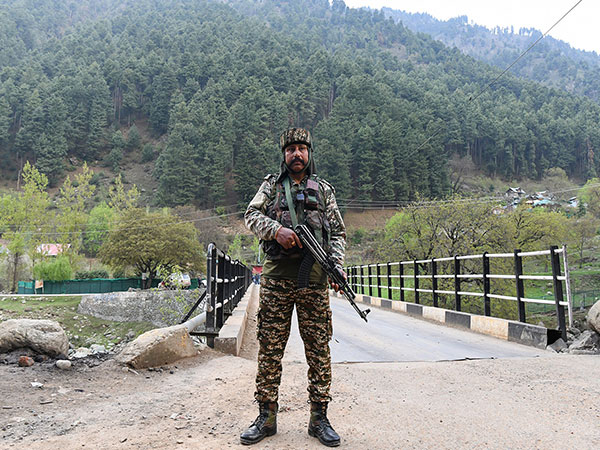Arif Wazir's killing a part of Pakistan's brutality on Pashtun Tahaffuz Movement
May 02, 2020

Islamabad [Pakistan], May 2 : Even in Ramzan, the Muslim month of fasting and seeking forgiveness, the Islamic Republic of Pakistan continues its crackdown on its Pashtun population, killing Arif Wazir- the leader of Pashtun Tahaffuz Movement (PTM).
On the first Friday of the holy month, unidentified persons opened fire at Wazir near his house in Waza, the South Waziristan district of the country's Khyber Pakhtunkhwa province, Dawn reported.
The Pashtun leader, who had come out on bail nearly a month ago, was rushed to a nearby hospital before being shited to Islamabad for medical treatment.
The deceased leader's cousin, Muhammad Ali Wazir, in a statement said that the PTM leader, had received three bullet injuries to his body, The News International reported.
The condolence for the leader of the civil rights came in from Afghanistan as well.
"Devastated to hear about the loss of Arif Wazir. My deepest condolences to his family, friends, and #PTM. Despite losing many loved ones in similar fashion Arif Wazir campaigned for non-violence. His advocacy and activism must not go in vain. Rest in peace brother!," tweeted Fazel Fazly, Director General, Administrative Office of the Afghanistan President.
The killing of Wazir highlights Pakistan's sustained intimidation, censorship, arrests and persecution of Pashtuns and the crushing of the PTM, a movement advocating for the rights of ethnic Pashtuns.
Last year, on May 27, large scale anti-Pakistan protests broke out in Peshawar, Swat, Dera Ismail Khan, Quetta and other towns in the Khyber Pakhtunkhwa and Balochistan provinces, following the killing of at least three ethnic Pashtun activists in the northwestern tribal region.
Ever since it was founded in 2018, the PTM has organised regular demonstrations against Pakistan Army's heavy-handed operations in tribal regions.
The PTM favours judicial probes into the killings by the military and campaigns against extrajudicial executions, enforced disappearances and discrimination against Pashtuns- something that Pakistan does not like and chooses to crush the civil rights movement with brute force.
Pakistan's own former foreign minster Khwaja Asif, last year in the country's parliament acknowledged that Islamabad 'exploited' the Pashtun homeland for decades.
Global civil society alliance, CIVICUS, last year said that it has "documented systematic attacks against the PTM with scores of peaceful protesters arbitrarily arrested, detained, and prosecuted on spurious charges, while protests by the PTM have been obstructed."
In their statement, it urged Pakistan to "end their judicial persecution" of Gulalai Ismail, a PTM leader and human rights activist.
Earlier this year in January, PTM leader and lawmaker Mohsin Dawar was taken into custody with 28 others, while holding a peaceful protest outside Islamabad's National Press Club against the arbitrary arrest of Pashtun activist Manzoor Pashteen.
Those arrested included civil society members and PTM activists among others, including three women.
Six, including Mohsin Dawar, were released but 23 others were sent to Adiala jail on judicial remand.
"We are writing to you to express our serious concerns over the arbitrary arrests of activists from the Pashtun Tahafuz Movement (PTM) over the last week. On 27 January 2020, PTM leader and activist Manzoor Pashteen was arbitrarily arrested in Peshawar for criticising government policies based on a speech he gave on 18 January in Bannu," CIVICUS wrote to Shireen M Mazari, Pakistan's Federal Minister for Human Rights Ministry of Human Rights.
Later, Manzoor Pashteen was released on bail on January 25.
Amnesty International on Saturday said the authorities must carry out an effective probe into the attack on Arif Wazir, and suspected perpetrators must be held accountable.
Pakistan forces continues brutal crackdown on Pashtuns, PTM leader Arif Wazir's killing is latest example




















